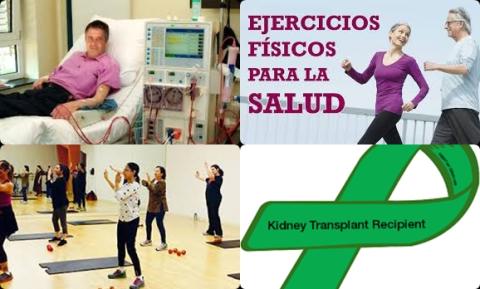
Objectives:
Whether exercise can improve cardiovascular health in kidney transplant recipients (KTRs) is unclear. Therefore, this review article (meta-analysis) has been conducted.
Does exercise improve cardiovascular health in kidney transplant recipients?
Study design:
This review article included 12 RCTs (trials) in the review and 11 RCTs for further qualitative analysis.
Most trials provided a 30-60 minutes exercise session for 2-4 times per week.
In terms of the total intervention period, most trials ranged from 10 weeks to 6 months.
Results and conclusions:
The investigators found in 5 trials with a total of 199 participants that exercise had no effects on either systolic [MD = 1.67, 95% CI = -2.17 to 5.51, p = 0.39] or diastolic blood pressure [MD = 0.65, 95% CI = -4.02 to 5.32, p = 0.78].
The investigators found in 3 trials with a total of 261 participants that exercise had no significant benefits in overall lipid profile [MD = 0.03, 95% CI = -0.09 to 0.15, p = 0.62].
In subgroup analysis, total cholesterol [p = 0.15], LDL cholesterol [p = 0.83] and triglyceride [p = 0.82] were not ameliorated by exercise.
The investigators found in 2 trials with 22 subjects in the exercise group and 28 controls that a 12 months of resistance training or regimens of aerobic or resistance training for 12 weeks was not associated with an improvement in kidney function [MD = 2.60, 95% CI = -12.88 to 13.09, p = 0.74].
The investigators found that aerobic training, resistance training or the combination during 12 weeks to 12 months was not associated with an improvement on body weight [MD = -2.02, 95% CI = -8.24 to 4.20, p = 0.52, n = 3] or BMI [MD = 0.12, 95% CI = -1.52 to 1.77, p = 0.88, n = 4].
The investigators found in 2 trials with a total of 64 participants that a 12-week exercise showed a consistent improvement in small arterial stiffness [MD = -1.14, 95% CI = -2.19 to -0.08, p = 0.03].
The investigators found in 5 trials with a total of 202 participants that aerobic training, resistance training or combined method over the course of 12 weeks to 12 months had a significant improvement in exercise capacity (VO2 peak) [MD = 2.25, 95% CI = 0.54 to 3.69, p = 0.01].
The investigators found exercise improved quality of life in different aspects, with significant enhancement in social functioning [MD = 16.76, 95% CI = 2.16 to 31.37, p = 0.02] and overall QOL scores [MD = 12.87, 95% CI = 6.80 to 18.94, p 0.01].
The investigators concluded exercise intervention in kidney transplant recipients improves arterial stiffness and it also improves exercise tolerance and quality of life. Additional long-term RCTs examining a greater number of patients are needed to understand the effects of exercise on cardiovascular health in kidney transplant recipients.
Original title:
Effects of exercise training on cardiovascular risk factors in kidney transplant recipients: a systematic review and meta-analysis by Chen G, Liu Gao L and Li X.
Link:
https://www.ncbi.nlm.nih.gov/pmc/articles/PMC6534232/
Additional information of El Mondo:
Find here more information/studies about chronic disease and kidney disease and sport nutrition.